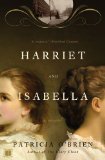Summary | Excerpt | Reading Guide | Reviews | Beyond the Book | Readalikes | Genres & Themes | Author Bio

Harriet slams the window shut and presses her forehead against
the glass. She is having a hard time drawing a deep breath, but not because of
that prancing fool in blackface. The angry yell spiraling up from the street,
that was Isabella. She knows her sister's voice.
She moves to the side of her brother's bed and sinks to her
knees. Will she have to protect him against yet another assault? Just
remembering him up on that stand in the Brooklyn courthouse, facing mocking
lawyers and treacherous friends -- it is too much. Bella had no judgment then,
and certainly would have none now. What did she hope to accomplish by coming to
Brooklyn Heights? She had to be here to put herself somehow at the center of
Henry's dying, that's what she was about. She was trying once again to force
herself to center stage.
Henry moans, and his eyelids seem to flutter. Harriet catches
her breath. Will he open his eyes? Look at me just once more, she pleads
silently. But his eyes remain closed.
Harriet stands up and pulls a chair close to the bed, still
hearing in her head the coarse chant from the sidewalk. There is no way to erase
what the trial did to Henry's life. He has come through it and lived honorably,
but the press will be delighted to drag the details out again. There will be no
stopping them, of that, she is sure.
Harriet takes a folded washcloth from the bedstand, moistens it
with water from a small earthenware pitcher, and presses it to Henry's cracked
lips. It is perhaps a futile gesture, but she has to do something. How much care
is he getting from the nurse, she wonders. Or, more to the point, from Eunice.
A memory flashes: Bella turning to her on one occasion when
Eunice's disapproving presence had flattened out a family evening and
whispering, "Save us from the sourpuss." Harriet had giggled into her napkin,
delighted with her sister's mischievous streak. The Bella she remembers from
those years would certainly have had something pithy to say about Eunice already
planning her wardrobe for the funeral.
But not anymore. Bella's sense of mischief turned destructive
long ago, and what she is most capable of now is something melodramatic and
harmful. Had Calvin been right? Harriet cannot forget his comment about Bella's
shocking behavior before the trial. "Hattie, don't expect anything from Bella.
Separate blood breeds separate loyalties," he had said.
"Are you implying we are not true sisters?" she'd demanded.
"You have different mothers. I'm saying that means different
natures." He had looked tired, as if unwilling to go another round with his
strong-willed wife.
"That's absurd. She's a Beecher, and Beechers stand together."
"Well said. But it isn't happening."
He was right, of course. But why then, as she sits next to
Henry's shrouded, still form, bracing for his imminent death, does the sound of
her sister's voice almost move her to tears?
Deep in memory, something else stirs, the sound of another
angry, spiraling wail. She closes her eyes and grabs again at the flailing fists
of thirteen-year-old Bella, trying to hold her close. Poor child, her mother
gone. The beautiful, melancholic stepmother who cared not a fig for her
stepchildren, but whose death had left Bella bereft. It was strange to soothe
her little sister that day, strange to feel again a distant mourning for her own
lost mother, and only detachment for the loss of this one.
"Hattie, help me. I'm trying to accept God's will, but I can't!"
"You don't have to." Harriet's voice caught.
"No, no, Papa says I grieve too much and it is a sin."
"He's wrong."
Bella's eyes widened at this apostasy. "But he never is," she
whispered.
"Bella." Harriet cupped her sister's chin in her hands and
looked her straight in the eye. Even as she spoke she felt her recklessness. Who
was she, at twenty-four, to challenge the orthodoxy of her father? But it was
what she and Henry talked about, somewhat guardedly, to be sure, for they did
not want to hurt or outrage Lyman Beecher. Yet was his vision of a vengeful God the only one in this day and age?
Copyright © 2008 by Patricia O'Brien.
On the whole, human beings want to be good, but not too good and not quite all the time
Click Here to find out who said this, as well as discovering other famous literary quotes!
Your guide toexceptional books
BookBrowse seeks out and recommends the best in contemporary fiction and nonfiction—books that not only engage and entertain but also deepen our understanding of ourselves and the world around us.